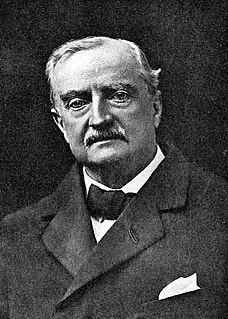
The 2001 United Kingdom general election was held on Thursday 7 June 2001, four years after the previous election on 1 May 1997, to elect 659 members to the British House of Commons. Under the leadership of Tony Blair, the governing Labour Party was re-elected to serve a second term in government with another landslide victory, returning 413 of the 418 seats won by the party in the previous general election, a net loss of 5 seats, though with significantly lower turnout than before—59.4%, compared to 71.3% in the previous election. Tony Blair went on to become the first Labour Prime Minister to serve a consecutive full term in office. It was dubbed "the quiet landslide" by the media.
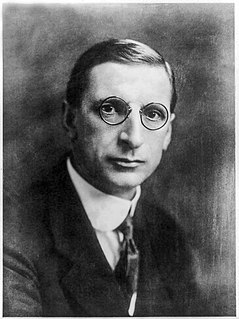
The Irish general election of 1918 was that part of the 1918 United Kingdom general election which took place in Ireland. It is now seen as a key moment in modern Irish history because it saw the overwhelming defeat of the moderate nationalist Irish Parliamentary Party (IPP), which had dominated the Irish political landscape since the 1880s, and a landslide victory for the radical Sinn Féin party. It had never stood in a general election, but had won six seats in by-elections in 1917–18. Sinn Féin had vowed in its manifesto to establish an independent Irish Republic. In Ulster, however, the Unionist Party was the most successful party.
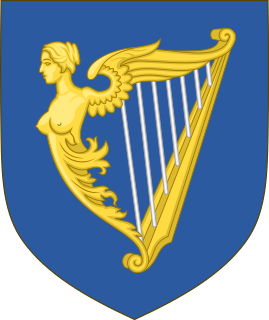
The Irish Parliamentary Party was formed in 1874 by Isaac Butt, the leader of the Nationalist Party, replacing the Home Rule League, as official parliamentary party for Irish nationalist Members of Parliament (MPs) elected to the House of Commons at Westminster within the United Kingdom of Great Britain and Ireland up until 1918. Its central objectives were legislative independence for Ireland and land reform. Its constitutional movement was instrumental in laying the groundwork for Irish self-government through three Irish Home Rule bills.
The Unionist Party was the main centre-right political party in Scotland between 1912 and 1965.

The 1950 United Kingdom general election was the first ever general election to be held after a full term of Labour government. The election was held on Thursday 23 February 1950. Despite polling over 700,000 votes more than the Conservatives, and receiving more votes than they had during the 1945 general election, Labour obtained a slim majority of just five seats—a stark contrast to 1945, when they had achieved a comfortable 146-seat majority. There was a national swing towards the Conservatives, whose performance in terms of popular vote was dramatically better than in 1945. Labour called another general election in 1951.

The 1918 United Kingdom general election was called immediately after the Armistice with Germany which ended the First World War, and was held on Saturday 14 December 1918. The governing coalition, under Prime Minister David Lloyd George, sent letters of endorsement to candidates who supported the coalition government. These were nicknamed "Coalition Coupons", and led to the election being known as the "coupon election". The result was a massive landslide in favour of the coalition, comprising primarily the Conservatives and Coalition Liberals, with massive losses for Liberals who were not endorsed. Nearly all the Liberal M.P.s without coupons were defeated, although party leader H.H. Asquith managed to return to Parliament in a by-election.

The 1892 United Kingdom general election was held from 4 July to 26 July 1892. It saw the Conservatives, led by Lord Salisbury, win the greatest number of seats, but not enough for an overall majority as William Ewart Gladstone's Liberals won many more seats than in the 1886 general election. The Liberal Unionists who had previously supported the Conservative government saw their vote and seat numbers go down.
In parliamentary politics, the term balance of power may describe a parliamentary situation in which a member or a number of members of chamber are in a position by their uncommitted vote to enable a party to attain and remain in minority government, and the term may also be applied to the members who hold that position. The members holding the balance of power may guarantee their support for a government by either joining it in a coalition government or by an assurance that they will vote against any motion of no confidence in the government or abstain in such a vote. In return for such a commitment, such persons may demand legislative or policy commitments from the party they are to support. A person or party may also hold a balance of power in a chamber without any commitment to government, in which case both the government and opposition groupings may on occasion need to negotiate that person's legislative support.
The Newmarket by-election, 1913 was a parliamentary by-election held on 16 May 1913 to fill a vacancy in the United Kingdom House of Commons for the Eastern or Newmarket Division of Cambridgeshire.

Andrew Macbeth Anderson, Lord Anderson was a Scottish barrister, judge and Liberal Party politician.

The Irish Home Rule movement was a movement that campaigned for self-government for Ireland within the United Kingdom of Great Britain and Ireland. It was the dominant political movement of Irish nationalism from 1870 to the end of World War I.

The 1920 Irish local elections were held in January & June 1920 for the various county & district councils of Ireland. The elections provide an interesting barometer of opinion in Ireland during the early stages of the Irish War of Independence (1919–21), and were the last elections to be held on an all-Irish basis, with the Government of Ireland Act 1920 being passed at the end of the year, legislating for the partition of Ireland. The next local elections in Ireland were held in Northern Ireland in 1924, with the Irish Free State holding local elections in 1925.
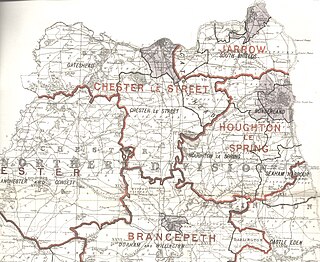
The North West Durham by-election was a Parliamentary by-election held on 30 January 1914. It returned one Member of Parliament to the House of Commons of the United Kingdom, elected by the first past the post voting system.
The Wick Burghs by-election was a Parliamentary by-election. It was a Scottish Highland constituency that returned one Member of Parliament to the House of Commons of the United Kingdom, elected by the first past the post voting system. The constituency was a district of burghs representing the parliamentary burghs of Cromarty, Dingwall, Dornoch, Kirkwall, Tain and Wick. The by-election took place during the third anniversary of the Liberal Government's re-election of December 1910. It was thought to be a key indicator to the outcome of the following general election anticipated to take place in 1914-15.
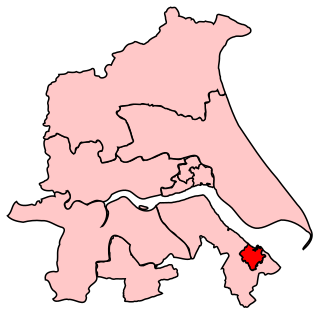
The Great Grimsby by-election was a Parliamentary by-election. It returned one Member of Parliament to the House of Commons of the United Kingdom, elected by the first past the post voting system. It was one of the last by-election contests to take place before the outbreak of war, and provided a good indicator of how the main parties would have performed at an anticipated 1914/15 general election.
The Liverpool Exchange by-election, 1897 was a by-election held in England on 10 November 1897 for the House of Commons constituency of Liverpool Exchange.
The Londonderry City by-election was a Parliamentary by-election. It returned one Member of Parliament to the House of Commons of the United Kingdom, elected by the first past the post voting system.
David Cleghorn Hogg JP was a Protestant businessman and politician, originally from Scotland, but established resident in Victoria Park, Derry, County Londonderry.
The North Tyrone by-election was a Parliamentary by-election. North Tyrone returned one Member of Parliament to the House of Commons of the United Kingdom, elected by the first past the post voting system. The election was held on 6 October 1911.




